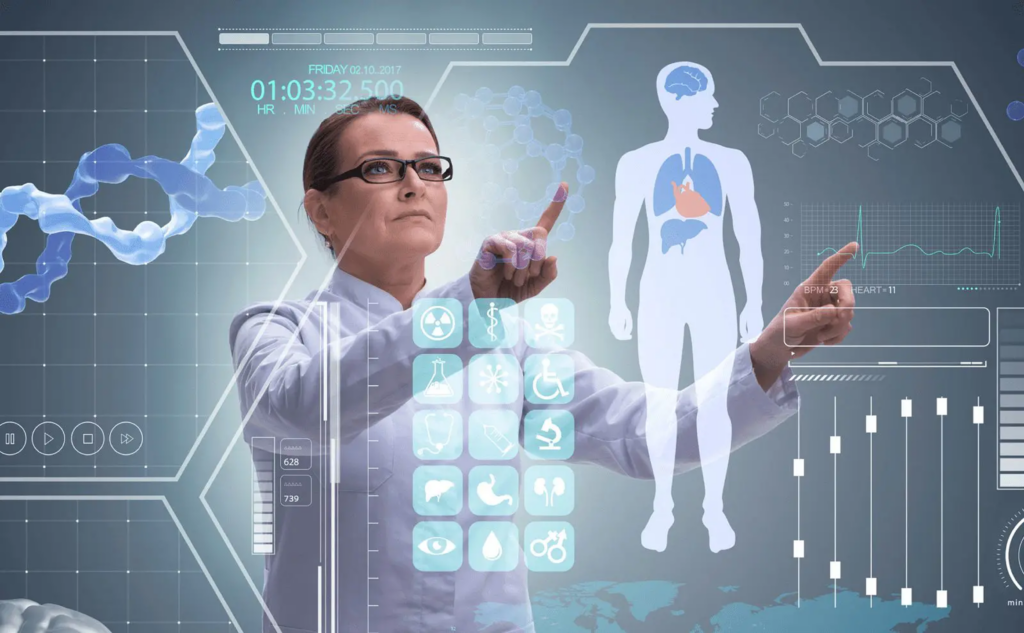The demands on healthcare providers have never been greater. As patient communication continues to shift into digital spaces—whether through electronic health records (EHR) messaging, virtual visits, or social media inquiries—clinicians face increasing workloads that contribute to burnout, delayed responses, and patient frustration.
A recent study, Comparing Physician and Artificial Intelligence Chatbot Responses to Patient Questions Posted to a Public Social Media Forum, highlights an emerging solution: AI-driven assistants that generate high-quality, empathetic responses to patient inquiries. The study’s findings reinforce what we at CARE-E Ai believe: AI-powered clinical assistants can meaningfully support physicians, reducing workload while maintaining high standards of care.

Key Findings: How AI Stacks Up Against Physician Responses
The study compared 195 patient questions posted to an online medical forum, evaluating responses from licensed physicians and an AI chatbot (ChatGPT). The results were striking:
- AI responses were preferred over physician responses in nearly 79% of cases.
- AI-generated responses were rated 3.6 times higher in quality than those from physicians.
- AI responses were judged 9.8 times more empathetic than physician responses.
Interestingly, physician responses were significantly shorter and more direct, while AI-generated responses tended to be longer, more detailed, and structured in a way that reassured patients. This raises an important question: Can AI-powered assistants improve patient communication and provider efficiency without sacrificing quality?

CARE-E: AI That Enhances, Not Replaces, Clinicians
At CARE-E Ai, we recognize the potential of AI to bridge communication gaps while keeping physicians in control of patient interactions. Unlike generic AI chatbots, CARE-E is purpose-built for clinical environments, ensuring that responses are medically accurate, EHR-integrated, and aligned with best practices.
How CARE-E Elevates AI-Powered Patient Communication
CARE-E elevates AI-powered patient communication by delivering seamless, omnichannel engagement that meets patients where they are—whether via text messages, emails, phone calls, or patient portals. By automating critical patient interactions such as scheduling, assessments, and enrollments, CARE-E reduces administrative workload while ensuring timely, accurate, and personalized communication.
Beyond Chatbots: AI as a Strategic Partner in Healthcare
The study suggests that AI can improve patient communication, but true healthcare AI must go beyond text generation. CARE-E provides clinical-grade AI support that is:
- Context-aware – Leveraging EHR data to personalize responses.
- Compliance-focused – Ensuring HIPAA-compliant, secure messaging.
- Workload-reducing – Helping providers manage message volume without compromising patient care.
- Continuously improving – Using clinician feedback to refine AI-generated responses over time.

The Future of AI in Patient Communication
The evidence is clear: AI can enhance efficiency, accuracy, and empathy in patient communication. But the key to success lies in responsible implementation—AI should support, not replace, clinical decision-making.
CARE-E is leading this charge, offering clinically grounded AI solutions that empower providers, reduce burnout, and enhance patient trust. As AI continues to evolve, healthcare organizations that embrace intelligent, integrated, and physician-guided AI tools will be best positioned to improve both patient outcomes and clinician well-being.
By Bryan Sable, M.B.A.








